Structure & Budget
While Japan’s total landmass is ranked 61st in the world, its surrounding waters propels the island nation to 6th place in terms of maritime area. Such maritime area not only includes territorial waters, but also exclusive economic zones (EEZ) that hosts abundant fishery and seabed resources.
To safeguard these assets, the Japan Coast Guard (JCG) is tasked with the responsibly to combat illegal fishing, smuggling, and other maritime crimes, as well as responding to maritime accidents.
However, compared to the vastness of its responsible area, the JCG is often regarded as both underfunded and under-equipped.
As a brief introduction, the JCG comprises 14,700 personnel, 480 patrol vessels, and 90 aircrafts, with an annual budget of approximately 20 billion USD..
In comparison to the Maritime Self-Defense Force (JMSDF), the JCG is around one-third in personnel strength and the budget is only 15% that of the navy. This is certainly not a predicament exclusive to Japan, but it does underscore the challenge of protecting vast maritime interests with a limited force.
All things considered, recent years have seen the JCG being reinforced in response to China’s maritime expansion, with more patrol vessels and a consecutive budget increase.
It does fall short of the United States Coast Guard or the rapidly growing China Coast Guard, but its equipment and capabilities are no means inferior, as it still ranks as the world’s fifth largest coast guard.
Different From JMSDF
Many compare the JCG to the JMSDF, but they are entirely separate organizations with each falling under different ministries – the JMSDF belonging to the Defense Ministry and the JCG under the Ministry of Land, Infrastructure, Transport and Tourism or MLIT for short.
The JCG focuses on maintaining public order and ensuring the safety of maritime traffic, resembling that of a police force instead of a military organization. In fact, the JCG functions as a law enforcement agency with its personnel being designated as “special judicial police officers.”
Thus, JCG officers have the authority to arrest and investigative criminal suspects, whereas JMSDF members cannot conduct such activities unless they are part of the military police units.
For instance, JMSDF vessels dispatched for counter-piracy missions are accompanied by a JCG officer to arrest and detain the pirates.
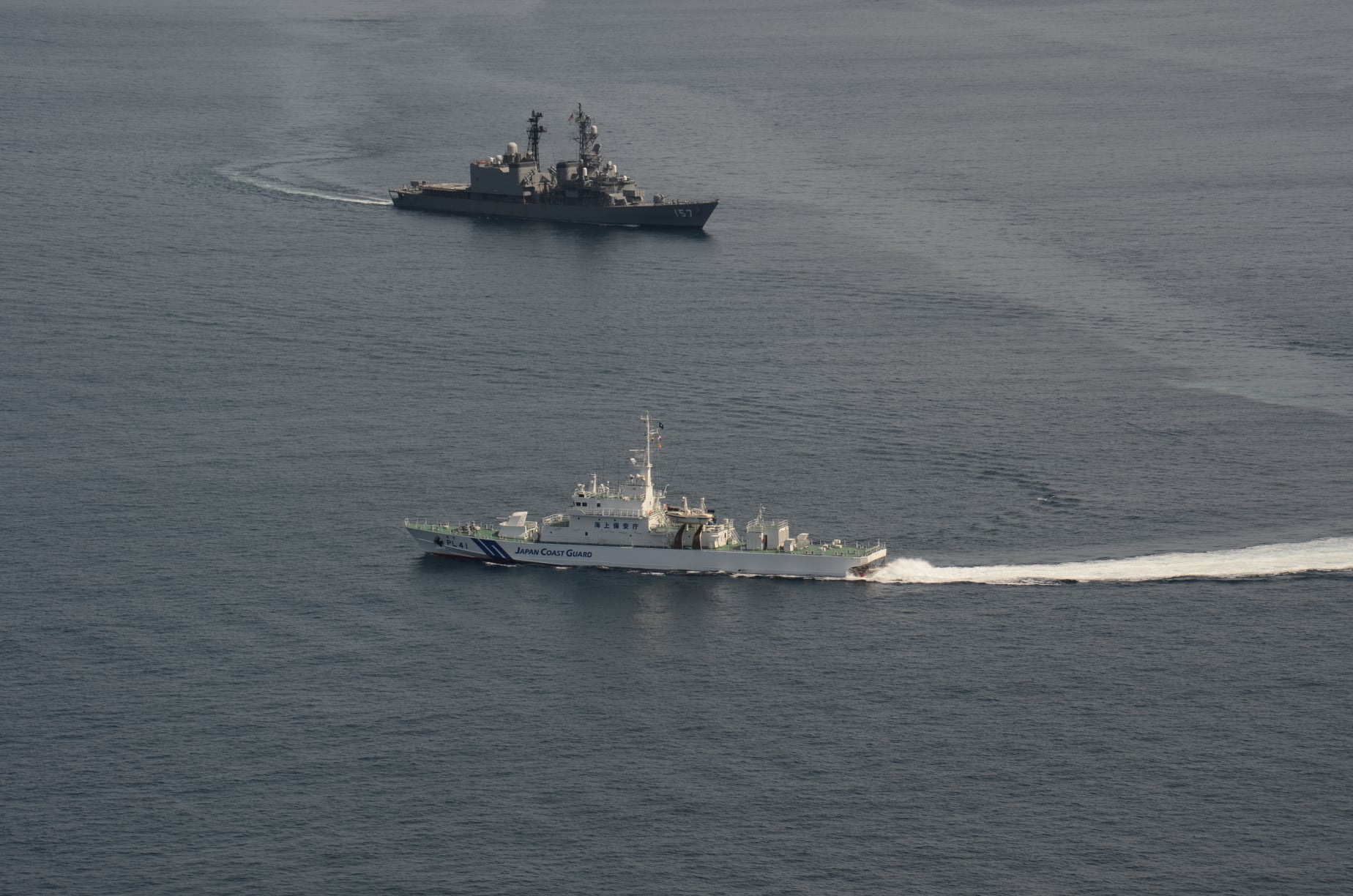 A JMSDF vessel and JCG ship during joint training (photo: JCG)
A JMSDF vessel and JCG ship during joint training (photo: JCG)
Due to this notion of being a law enforcement agency, the JCG has maintained its stance of being “non-military” ever since its establishment in 1948. Such nature is explicitly stated in the Coast Guard Law, where Article 25 confirms that the JCG is not a military organization.
This distinction sets the JCG apart from other coast guards which are usually treated as paramilitary organizations.
Nonetheless, it is important to note that the JCG does possess some military-like characteristics and can be temporarily placed under the command of the Minister of Defense during a national emergency.
Merits of Being Non-Military
Quite a few have advocated for the JCG to be brought under the Defense Ministry as a paramilitary organization, but there seems to be more harm than good in doing this.
First of all, despite the emphasis on its non-military nature, the JCG is not prohibited from engaging in military activities or cooperating with the JMSDF.
Considering the fact that armed fishermen and other gray-zone contingencies have blurred the line between military and law enforcement activities, placing both organizations under the same jurisdiction may ensure smoother coordination.
But, transferring a large organization from one ministry to another would require an enormous amount of political leverage to overcome the intertwined interests and bureaucratic resistance.
Even if such move were possible, it would likely result in significant backlash and morale decline on the JCG side, as they would be treated as “the second JMSDF.”
We must remember that the JCG’s current status as a law enforcement agency does not present any serious issues, and priority should be given to expanding the human and budgetary resources.
Transferring the JCG into an official paramilitary organization is just not worth the political and bureaucratic effort.
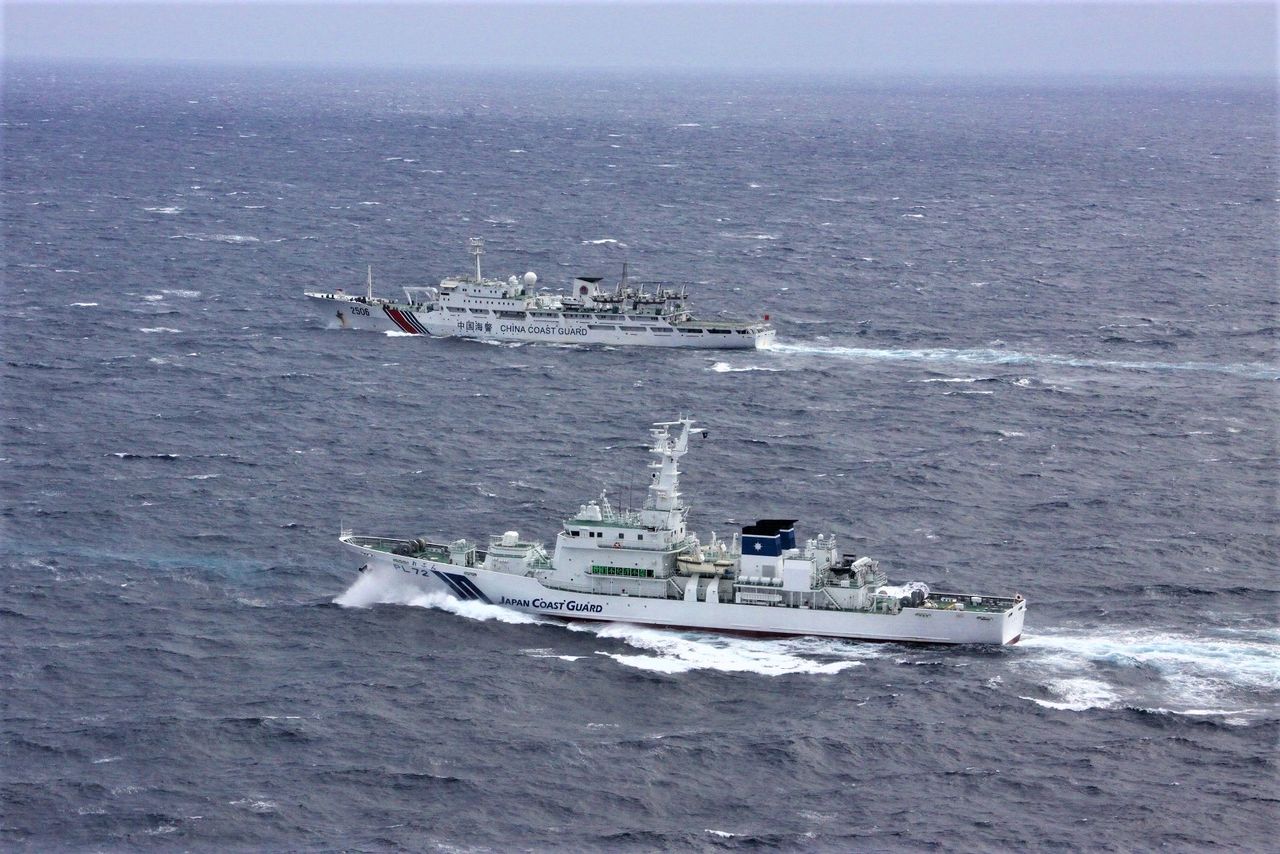 A JCG ship in parallel with a Chinese vessel (photo: JCG)
A JCG ship in parallel with a Chinese vessel (photo: JCG)
On the contrary, there are certain merits to not being a military organization.
One such example is that it is able to avoid escalation during maritime conflicts. The standoff between the JCG and the Chinese Coast Guard near the Senkaku Islands has become a daily routine, but the tensions remain at a police level thanks to the JCG’s non-military nature.
If Japan were to deploy JMSDF vessels or upgrade the JCG to a paramilitary force, China would be compelled to bring the level one notch above a military confrontation.
Because the JCG remains as a law enforcement agency, it can prevent unnecessary escalation and deterioration of the situation.

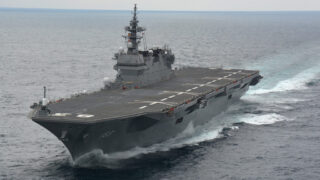
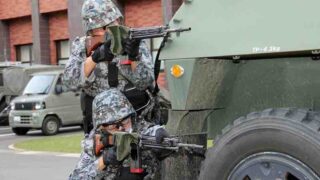
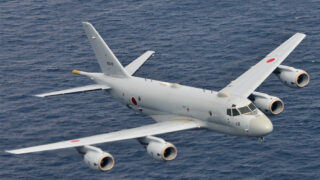
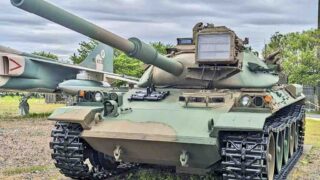
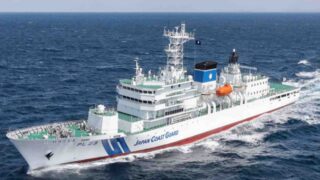


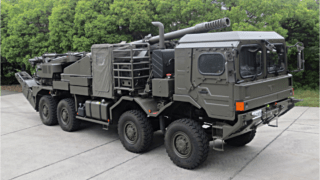

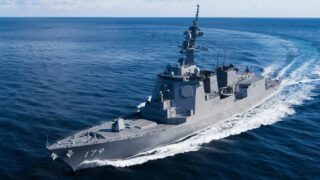
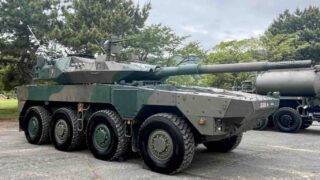

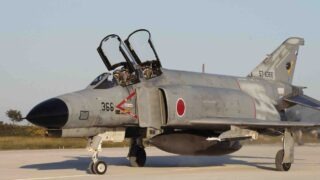
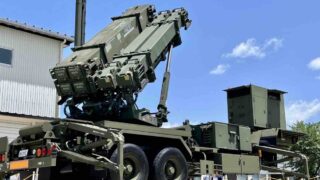

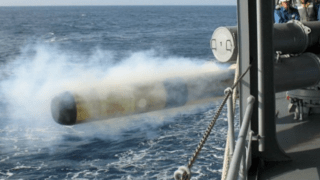

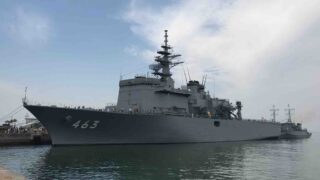

Comments